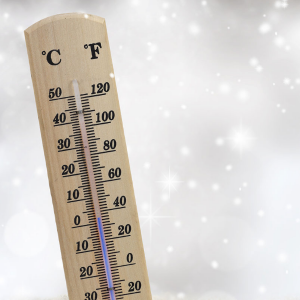Prepping Your Compressed Air System for the Cold Weather

The cold weather your air compressor faces in wintertime increases the risk of damages and downtime, costing you unnecessary time and money. However, to mitigate these risks there are a few preventative maintenance steps you can take that can prevent these costly issues and help your air compressor continue to perform efficiently in the cold winter months:
- Examine Condensate Drains
Your compressed air system relies on condensate drains to eliminate water. If they are harmed or blocked during the cold months, moisture can freeze, which could result in clogged pipes or other compressor issues.
- Inspect Air Intake Openings
When using an air compressor in the cold, check the intake frequently. If the intake is exposed to winter weather, snow, rain, and ice can quickly destroy it.
- Make sure weather stripping is working properly
Examine all of the weather stripping and replace any spots that show deterioration or aren’t functioning properly.
- Check for heat leaks
To keep heat inside and cold outside, having the right insulation is crucial for air compressor parts that are exposed to the weather. Any exposed parts should have heat trace tape applied.
- Protect air receivers
When the cold weather hits, condensate at the bottom of a receiver tank can freeze and create problems. Insulate all exterior pipes feeding the tank as well as the tank’s condensate drain, and check that it is functioning properly.
- Use external heat sources
Use floodlights or heat lamps to prevent controls from freezing if your compressed air equipment must be left outside in cold weather. Also, make an attempt to screen the equipment from the wind.
Our service team can help you prep your compressed air system for the cold weather. To discuss your compressed air requirements and how we can assist you keep your operation operating at its peak performance all year long, contact us today.


